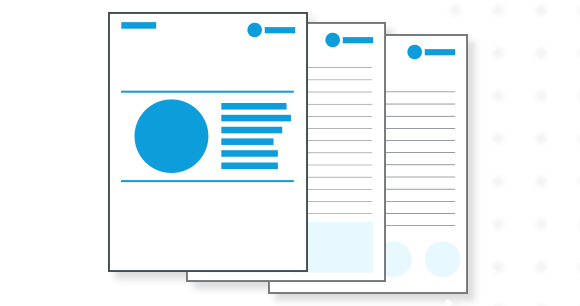iPaaS vs. Full Lifecycle API Management: Why You Need Both
Chances are that if you found your way to this blog — you already understand the importance of integration within the enterprise. According to the Connectivity Benchmark Report, the average organization has 991 applications and only 28% of them are currently integrated.
A common misconception is that organizations either need an integration platform as a service (iPaaS) or an API management solution to solve their integration challenges — however, iPaaS and full lifecycle API management aren’t interchangeable. In fact, both iPaaS and API management are needed to cover the full range of integration needs for enterprise systems.
I know what you’re thinking — “Why do I need two solutions to solve one problem?” “My organization doesn’t have the budget for two solutions.” Stick with me — there is a single solution to cover both your iPaaS and API management needs. In this blog, I’ll explain the unique functions of an iPaaS solution and a full lifecycle API management solution, why both are critical integration components for modern enterprises, and how you can have the best of both worlds within a single platform.
What is iPaaS?
Overtime, new technologies have brought about new software architectures — iPaaS emerged as IT infrastructures began implementing on-demand cloud services. Before iPaaS there was Software as a Service (SaaS), Infrastructure as a Service (IaaS), and eventually Platform as a Service (PaaS). And as enterprise technology stacks grew, the need for an integration platform as a service emerged.
iPaaS is a platform for building and deploying integrations within the cloud and between the cloud and the enterprise. Enterprise iPaaS solutions are the next generation of cloud applications that enable connectivity with other cloud-based software, SaaS, on-premises, and legacy applications. With iPaaS, users can develop and deploy integration flows between these systems without installing or managing any hardware or middleware.
What is full lifecycle API management?
APIs are a method for integrating enterprise systems and are often the vehicle that enables iPaaS solutions. API management is the process of overseeing and managing those APIs across their full lifecycle — from designing, publishing, documenting, analyzing, and beyond.
Solutions that manage the full API lifecycle provide a means of creating and deploying the API as well as the ability to govern, secure, and manage those APIs. API management solutions provide a single pane of glass to ensure visibility into APIs across the organization and that each API is secured properly, as well as serviced and troubleshot when errors arise. These solutions also provide a way for APIs to be easily accessed and discovered across the organization to be reused for other projects.
API management solutions offer various features such as API design studios, API analytics, can serve as an API gateway, and even API stores.
Why enterprises need both iPaaS and full lifecycle API management
Enterprise technology stacks are exploding. Organizations need connectivity — but with the sheer number of systems, applications, and devices they have — integration gets a bit messy.
iPaaS and API management both have different beginnings — iPaaS rising from the cloud-oriented needs and API management from developer-centric needs to unlock and reuse the APIs for different endpoints. But now, organizations need the unique cloud-based integrations that come along with iPaaS solutions and the governing power of a full lifecycle API management system.
It’s not enough to simply create an API and deploy it — enterprise iPaaS and full API lifecycle management solutions are both needed to compliment each other.
As a Leader in both the 2023 Gartner Magic Quadrant for Full Life Cycle API Management and the 2024 Magic Quadrant for Enterprise iPaaS, MuleSoft believes it is recognized as the only leading solution to offer a single, unified platform to manage the full end-to-end integration and API lifecycle, from design through management. We believe MuleSoft was recognized for its quick-moving go-to-market strategy and traction, innovative environment, and its versatile offerings. For the Full Life Cycle API Management Magic Quadrant, MuleSoft is recognized as a Leader for its ability to execute and completeness of vision.
Organizations across industries must unlock data quickly to increase their speed, agility, and efficiency. MuleSoft’s Anypoint Platform makes it easy to connect data from any system — to deliver critical, time-sensitive projects. Companies can start fast and realize immediate value, all in a future-proof way that turns data and processes into composable building blocks. Download both Gartner Magic Quadrant reports to learn more about how Anypoint Platform is perfectly suited to meet all your integration needs.
Gartner Magic Quadrant for Full Life Cycle API Management, 11 October 2023, Shameen Pillai, Paul Duman, John Santoro, Mark O’Neill, Nicholas Carter, Andrew Humphreys, Magic Quadrant for Enterprise Integration Platform as a Service, 13 February 2024, Keith Guttridge, Andrew Comes, Max van den Berk, Andrew Humphreys, Shrey Pasricha.
Gartner does not endorse any vendor, product or service depicted in its research publications and does not advise technology users to select only those vendors with the highest ratings or other designation. Gartner research publications consist of the opinions of Gartner’s research organization and should not be construed as statements of fact. Gartner disclaims al, warranties, expressed or implied, with respect to this research, including any warranties of merchantability or fitness for a particular purpose.




